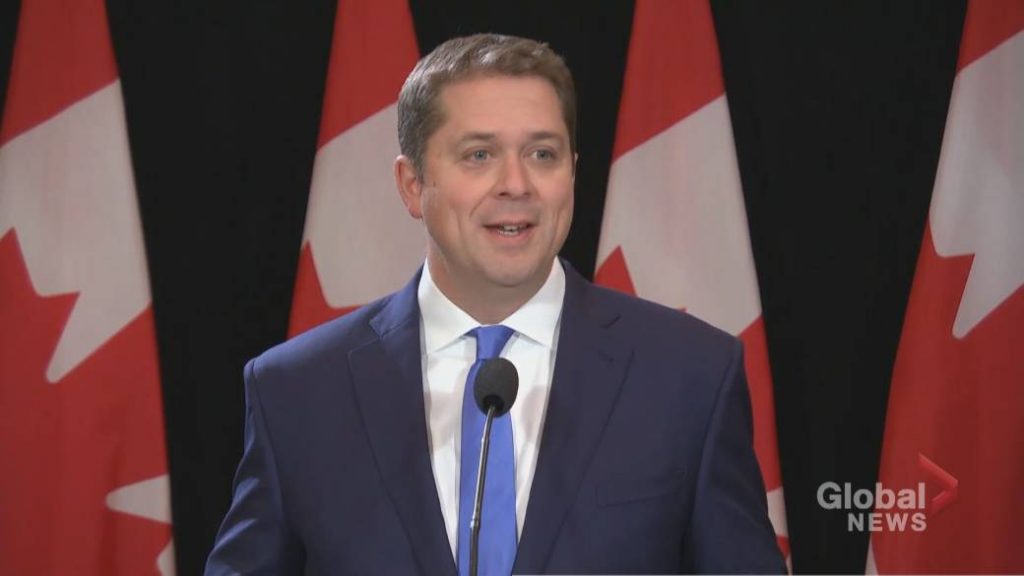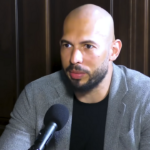Blog Post
How the media is using Andrew Scheer to target social conservatives
By Jonathon Van Maren
The most popular story in the Canadian media right now is the ongoing civil war within the Conservative Party, and the primary reason it is so popular is that it is a conflict that is almost entirely of their own creation. Every few minutes or so, another breathless column or breaking news item announces that another Conservative analyst or obscure Harper staffer has come out to state the obvious—that Andrew Scheer performed poorly in the last election—followed by the aggrieved conclusion that Scheer must go. Alternatively, NDP leader Jagmeet Singh is being treated as if he is one of the winners despite the fact that he managed to cut his party’s caucus in half, reducing the NDP to a sad rump of its former self.
Overnight, it has become the conventional wisdom, consistently stated as fact, that Andrew Scheer lost the election because he had a social conservative track record. Peter Mackay called it a “stinking albatross” around Scheer’s neck. In many ways this is not remotely surprising, and during the Election Night Livestream that I co-hosted with Alissa Golob and Scott Hayward, I predicted that this would happen. Red Tories and social liberals inevitably accuse social conservatives of ruining their electoral chances, even though a slim majority of the Conservative caucus now holds pro-life views. How the Conservative Party is to build a majority by offloading the part of their base that actually shows up—and cannot be coaxed over by the Liberals and the NDP—is never explained.
This is not to say that Scheer performed well during the election. Social conservatives were far more frustrated than anyone else, because every time Scheer got asked about the pro-life issue he managed to sound like he’d been pulled over by the cops, didn’t have the right answers to the questions he was being subjected to, and was desperately trying to avoid incriminating himself. It is ironic that Scheer’s inability to speak clearly about his social conservative record has resulted in his being accused of being too socially conservative to be prime minister. Incidentally, if his dodge-and-obfuscate approach to these questions had worked and he’d won, he would be facing none of these accusations, and many of the same commentators would be saying that his intelligent decision to distance himself from the social conservatives put him in 24 Sussex.
The fact is that the media and their Red Tory favorites have sensed an opportunity to alienate social conservatives from their primary electoral vehicle by crafting and promoting the narrative that Andrew Scheer, a scary Catholic who probably does not explicitly approve of gay sex, will not march alongside nude middle-aged dudes in leather, and definitely does not seem comfortable with abortion, is electorally unviable due to these positions. Of course, all of this is convenient extrapolation, but Scheer’s consistent inability to articulate himself clearly and forcefully on these issues has allowed the media to frame him in this fashion with very little pushback. The media knows that if they can kill Scheer’s leadership while claiming that it was his social conservative views that caused his downfall, they can virtually guarantee that no leadership candidate with such views, no matter how understated, can take the reigns of the Conservative Party.
The media’s strategy is so obvious that it would become a bad joke if anyone actually pointed it out. On the heels of Scheer being asked by a reporter if he believed homosexuality was a sin and Angus Reid noting that the media’s framing of Scheer’s views had successfully persuaded many voters that he was a determined theocrat, Mark Bonoski of the Toronto Sun uncovered even more evidence that Scheer was an obvious homophobe. How is it, he thundered, that MP Erin Duncan did not get a shadow cabinet position? Now, you can be forgiven for wondering who Duncan is, because he’s a freshman MP from the safe riding of Stormont, Dundas, and South Glengarry. But more importantly, he’s openly gay, which means that Scheer had a moral responsibility to select this inexperienced fellow to prove to the unpersuadable media that he doesn’t hate gay people. Because Scheer didn’t select him, Bonoski noted darkly, he had instead sent the message that people of Duncan’s sort weren’t welcome in the party.
This has left social conservatives in a very difficult position. Scheer spent most of the campaign distancing himself from so-cons, but the debate surrounding his leadership has become, by design, a referendum on the role of social conservatives in the Conservative coalition. The media sees a weak leader with a so-con record, and is now relentlessly reporting on the impending and supposedly inevitable Ides of March in the hopes that enough Red Tories get the idea and go for it. After all, Scheer is under fire, and most MPs look in the mirror and see a prime minister—so surely, the thinking goes, a few of them will find the temptation to plunge in the knife irresistible. And if Scheer goes down, the media will announce that his fall symbolizes the death knell of social conservative influence in politics.
Social conservatives may be unhappy with Andrew Scheer. But as far as the federal Conservative Party goes, social conservatives should probably remember that in politics, it can always get worse—and if Scheer is brought down over his so-con record and perceived so-con positions, it will have implications for the movement for years to come.









Andrew Scheer being replaced, will have no impact on social conservatism. First Catholics have zero moral authority to speak on these issues as the church itself is chuck full of pedophiles and number 2, the catholic church funds abortions behind the scenes. Surely there are good people within the catholic church, but social change will not come from anyone in the catholic church
I disagree, for the reasons stated above.
First, I have to point to my discussion with Navi on your last post on this issue. There isn’t much data, but there certainly is room for both sides to reasonably extrapolate their opinions.
“How the Conservative Party is to build a majority by offloading the part of their base that actually shows up—and cannot be coaxed over by the Liberals and the NDP—is never explained.”
Right, which is precisely why social conservatives don’t actually make policy. The form the unshakable base that the Conservatives don’t really have to appeal to by policy, as there is no other option for the social conservatives. This makes the social conservatives choose the party leader (a la Doug Ford), who then usually goes on to abandon their values to take overall power (a la Tanya Granic Allen’s comments on Doug Ford).
Is it surprising that Alberta and Saskatchewan elected more socially conservative MPs? Not at all – the problem is breaking into Eastern Canada with those policies. That is probably going to substantially water down the social conservatives if the PCs make it into power.